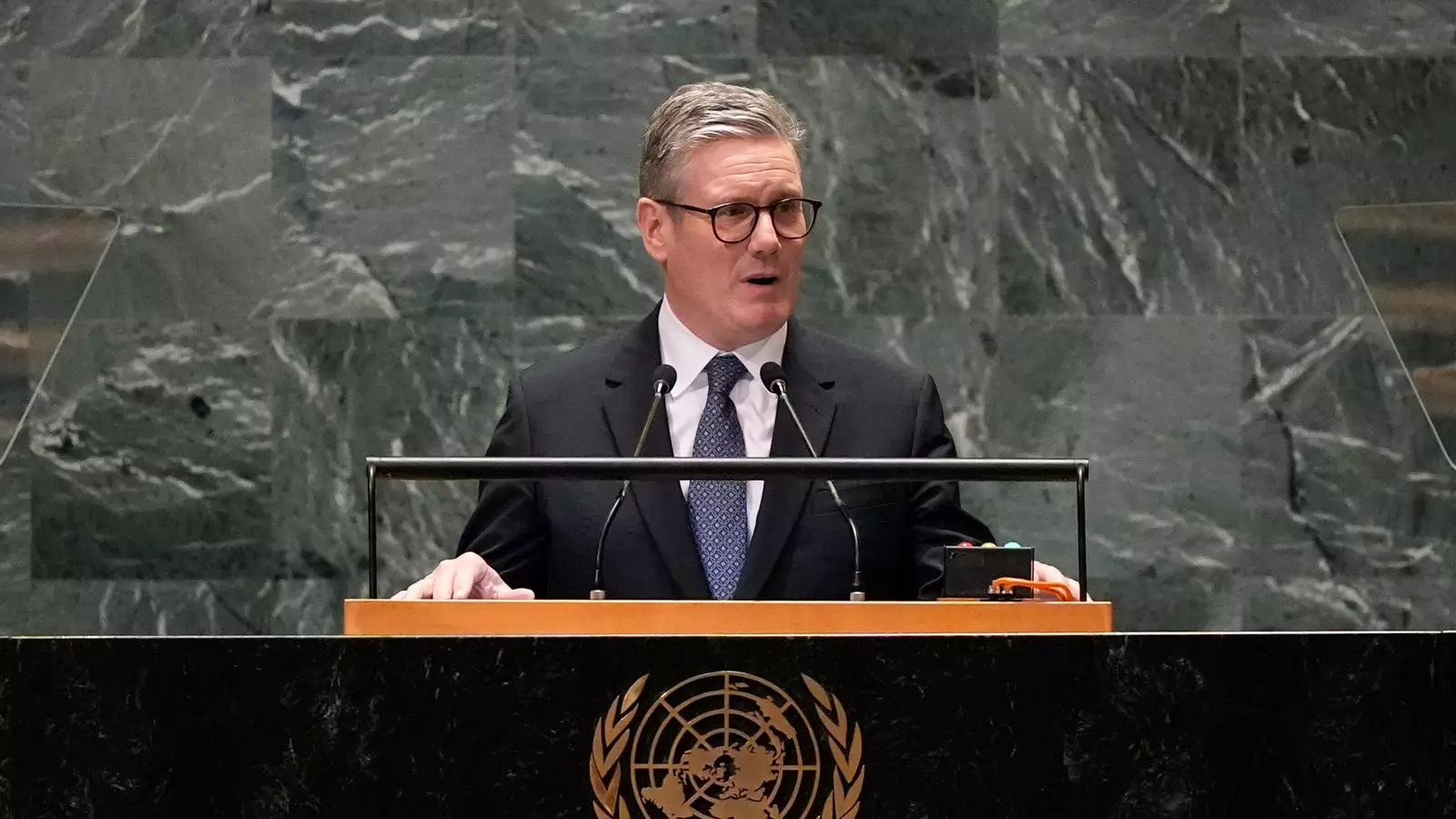In a significant address at the United Nations General Assembly, UK Prime Minister Sir Keir Starmer delivered an urgent call for peace, urging Israel and Hezbollah to agree to a ceasefire amidst escalating hostilities. This appeal came in the wake of troubling statements from Israeli Prime Minister Benjamin Netanyahu, who declared that Israeli forces would persistently “fight at full force,” dismissing any suggestion of a ceasefire as “not true.” Starmer’s assertion that “escalation serves no one” reflects a growing concern over the cycle of violence in the Middle East, a region already fraught with complexity and historical animosities.
Starmer’s emphasis on the need for an immediate cessation of violence is indicative of a larger aim to pave the way for a diplomatic dialogue that could foster a more sustainable peace. His vocal opposition to the escalation is not only a plea for calm in a region at risk but also a recognition of the often disastrous consequences that are borne by civilians caught in the throes of conflict.
While the focus of his speech centered on the immediate crisis involving Israel and Hezbollah, Starmer broadened his narrative to include the necessity for international cooperation in promoting peace more generally. He stressed that the United Nations must work collectively to avert further conflict, particularly a potential regional war in the Middle East. The urgency of such diplomatic action underscores the critical role institutions like the UN play in mediating international conflicts and fostering dialogue among nations.
Starmer’s remarks resonated with an ambition to shift the dynamics of conflict resolution, emphasizing the importance of institutional integrity and adherence to the principles outlined in the UN Charter. By declaring that the “greatest violation of the charter in a generation” had been committed by a permanent member of the Security Council—namely, Russia in the context of Ukraine—Starmer positioned himself as a vocal advocate for not only peace but also accountability. This critique of Russia illustrates the interconnectedness of global conflicts and highlights the need for a unified approach to international diplomacy.
Amidst these discussions of warfare and peacekeeping, Sir Keir Starmer managed to interject a relevance that transcends traditional political discourse: climate change. He proposed allocating billions from pensions and insurance funds towards initiatives aimed at combating climate change and enhancing development. This innovative approach points to a dual focus of promoting economic growth while simultaneously addressing one of the most urgent challenges faced by humanity today.
Starmer’s plan to harness private investment through British International Investment signifies a shift towards more sustainable financial practices. His call to “innovate,” “think differently,” and “move faster” conveys a sense of urgency and a recognition that traditional methods might not suffice in combating the climate crisis. This intertwining of climate change policy with global peace initiatives may signal a maturation of political rhetoric where issues deemed as separate are increasingly recognized as interconnected.
As Sir Keir Starmer lays out his visions on the world stage, noteworthy engagements loom on his itinerary. The confirmation of a meeting with former President Donald Trump ahead of the upcoming U.S. elections reflects a tactical maneuver in diplomacy. Such interactions could potentially enhance bilateral relations despite the complexities inherent in each political landscape. While opportunities for engagement with U.S. Vice President Kamala Harris were seemingly out of reach on this visit, it underscores the intricate web of global politics Starmer is navigating as he seeks to establish the UK’s positioning on the international front.
Sir Keir Starmer’s address at the United Nations encapsulated pressing global dilemmas—including the immediate threat of conflict between Israel and Hezbollah, the ongoing war in Ukraine, and the urgent need for climate action. His calls for diplomacy, accountability, and innovative economic strategies signal a reimagined approach to international relations and domestic policies, challenging established norms in favor of a more integrative and responsive governance framework. This comprehensive outlook may not only foster peace but also inspire global collaboration aimed at addressing some of the most pressing issues of our time.


Leave a Reply